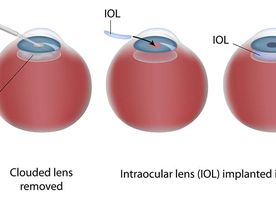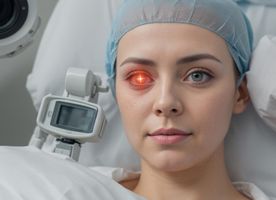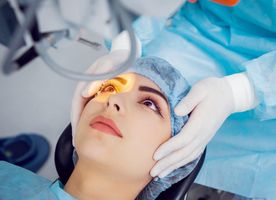Laser Eye Surgery (LASIK) in Lefkosa
Search and Compare the Best Clinics and Doctors at the Lowest Prices for Laser Eye Surgery (LASIK) in Lefkosa






Laser Eye Surgery (LASIK) at Near East University Hospital in Nicosia, Cyprus





Laser Eye Surgery (LASIK) at OptiLaser Eye Center in Nicosia, Cyprus


Laser Eye Surgery (LASIK) at Serkan Dağdelen in Nicosia, Cyprus
Our partner clinics in are accredited by the following associations






































































































































No Time?
Tell us what you're looking for and we'll reach out to the top clinics all at once
WHY US?






































































































































No Time?
Tell us what you're looking for and we'll reach out to the top clinics all at once
What Does The Procedure Involve?
Before the surgery, your eye doctor will give you an instruction on how to prepare for the surgery. Your cornea will be measured and your medical history will be evaluated. If you regularly wear contact lenses, you will have to stop wearing them completely for at least a few weeks before the procedure as contact lenses can change the shape of your cornea.
During LASIK, you lie on your back on a reclining chair. The procedure is performed under topical anesthetic, which will numb your eyes. An instrument is used to hold your eyelids open.
Your surgeon uses a small surgical tool called a microkeratome or uses a femtosecond laser to cut a small hinged flap away from the front of your eye (cornea). The hinged flap is then folded back to access the underlying cornea. After this, your eye doctor reshapes your cornea using a programmed laser. The cornea is reshaped so light entering your eye can focus more accurately on your retina for improved vision. Once your cornea is reshaped, the flap is put back into place. The flap normally heals without any stitches.
How Long Should I Stay in Lefkosa for a Laser Eye Surgery (LASIK) Procedure?
LASIK is often performed as an outpatient procedure, meaning you can leave the hospital once the effects of topical anesthesia and sedation wear off. The procedure itself may take 30 minutes to complete for both eyes. However, you should not leave Lefkosa immediately after you are discharged. The recommended length of stay is around 3 to 5 days to allow your body to recover, as well as to attend a follow-up checkup. During the checkup, your eye doctor will evaluate the health of your eye and visual acuity. It’s important to arrange the trip accordingly, taking these time frames into consideration to ensure sufficient recovery time
What's the Recovery Time for Laser Eye Surgery (LASIK) Procedures in Lefkosa?
During the day of the procedure, you may experience hazy or blurry vision. However, your vision will improve over the next couple of days after the procedure. If your job is not physically demanding, you should be able to go back to work within 2-3 weeks after the procedure. Your eyes will continue to heal and improve for about 6 months after LASIK. It is important to follow all aftercare instructions from your healthcare provider to minimize complications and accelerate the healing process.
What sort of Aftercare is Required for Laser Eye Surgery (LASIK) Procedures in Lefkosa?
Make sure you follow all instructions that your eye doctor gives you to achieve the best result and to avoid complications. You may have to refrain from doing any strenuous activities during your recovery period in order to ensure that your eyes heal properly. Always protect your eyes from injuries because your eyes are usually more susceptible to traumatic injuries after LASIK. You may have to attend regular follow-up visits to check your vision, but this is normally done with your local eye doctor.
Remember that LASIK does not prevent you from getting other eye diseases, so always protect your eyes. Eat healthy food to maintain the quality of your eyesight, wear a pair of sunglasses to protect your eyes from sun rays, take breaks when you are working on the computer or using your cell phone do not strain your eye, get enough sleep after a long day, and visit your eye doctor regularly.
What's the Success Rate of Laser Eye Surgery (LASIK) Procedures in Lefkosa?
LASIK offers a very high success rate. Studies revealed that 95% of patients with nearsightedness can achieve 20/25 vision following their surgery. More than 8 out of 10 people who’ve had :ASIK surgery no longer need glasses or contact lenses in their daily activities.
The results you will get depend on several factors, including your specific refractive error. Those with low degree nearsightedness usually achieve the most successful result. The results are less predictable on people with high degree farsightedness or nearsightedness, along with astigmatism.
Some LASIK patients require a second surgery for enhancement because the surgery results led to an under-correction. In some very rare cases, some people’s eyes can slowly return to the level of vision they had before surgery due to certain conditions, such as another eye problem, abnormal wound healing, and hormonal imbalances.
LASIK also carries some risks that you need to be aware of, including dry eyes, glare, double vision, halos, under-corrections, overcorrections, flap problems, astigmatism, regression, vision loss, and vision changes. Make sure to talk to your eye doctor about the risks.
Are there Alternatives to Laser Eye Surgery (LASIK) Procedures in Lefkosa?
The main alternative to LASIK is Phakic intraocular lens implants and Epi-Lasik. With Phakic intraocular lens implants, the corneal layers are not peeled or cut. Instead, an artificial lens made of silicone or plastic will be implanted to improve your vision. In Epi-Lasik, your natural lens is removed using a laser and replaced with an artificial IntraOcular lens. Since the artificial lens stays clear and never ages, the results last longer than other refractive procedures. Non-surgical choices like glasses and contact lenses are equally feasible. Guidance on the most suitable option, tailored to your unique condition, way of life, and aspirations, could be provided by your health professional. Before making a decision, it's essential to consider the advantages and disadvantages of each choice.
This information has been accurately sourced and verified by a medical professional for its accuracy, however, we strongly recommend you to consult with your doctor before pursuing medical procedures overseas.





